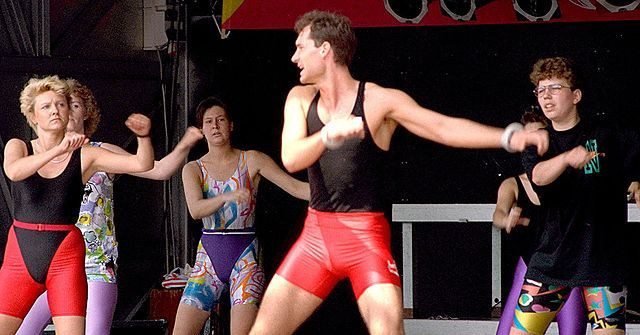Heavy Drinkers Can Prevent Brain Damage from Alcoholism with Exercise

A new study brings good news for heavy drinkers: while alcoholism causes brain damage over time, neural tissue death and loss of cognitive function can be prevented, and possibly reversed, by regular aerobic exercise.
Researchers from the University of Colorado at Boulder found that light but frequent exercise like running, walking, or biking was related to less damage to the brain's connective tissue, or "white matter," among alcoholics. Their study was published on April 16 in the journal Alcoholism: Clinical & Experimental Research.
"We found that for people who drink a lot and exercise a lot, there was not a strong relationship between alcohol and white matter," said lead researcher Hollis Karoly, a neuroscience graduate student at CU Boulder, in a news release. "But for people who drink a lot and don't exercise, our study showed the integrity of white matter is compromised in several areas of the brain. It basically means white matter is not moving messages between areas of the brain as efficiently as normal."
The nerve cells that constitute white matter are vital to efficient brain function. When they degrade in conditions like multiple sclerosis and Alzheimer's, cognitive and motor deficits develop. Chronic alcoholism causes such damage, making it more difficult for regions of the brain to communicate with each other and coordinate behavior.
In order to investigate the effects of exercise on white matter health in drinkers, Karoly's team recruited 60 participants who regularly drank moderately to heavily. Each of them completed a brain imaging scan with Diffusion Tensor Imaging (DTI), which tracks the direction and movement of water molecules traveling along nerve fibers in the brain's white matter neurons. DTI represents movement patterns with an array of different colors, providing extraordinary detail of the brain's communication channels.
The participants also completed a standard self-report questionnaire called the Alcohol Use Disorders Identification Test (AUDIT), which assesses the extent of an individual's habitual drinking, and told researchers how often and how much they had exercised recently.
Analysis of the DTI scans showed a significant interaction between the amount of aerobic exercise and alcohol intake on the state of two particular bundles of white matter fibers in the brain.
The external capsule, which crosses several layers of the brain, was particularly healthy in heavy drinkers who also exercised often. The superior longitudinal fasciculus, a pair of neuron bundles running along the entire length of the cerebrum, also benefited from aerobic exercise. The cerebrum is the largest part of the brain, and its activity is responsible for most of what makes us human- abstract thoughts, decision-making, language, and creativity, among many other functions.
While regular aerobic exercise supports healthy brain, cardiovascular, and muscular functions in most people, Angela Bryan, a CU-Boulder psychology professor who co-authored the study, suggested in the news release that exercise is particularly helpful in repairing white matter damaged by heavy drinking.
"It might even be a more promising treatment approach for alcohol problems because it is both a behavioral treatment and a treatment that has the potential to make the brain more healthy. The healthier the brain is, the more likely a person with alcohol issues is to recover."
The mechanisms by which it does so are still unclear, though it's likely that smoother oxygen flow to the brain can help repair atrophied neurons. Other studies show that aerobic exercise is correlated with higher white matter volume in older healthy adults.
The brain damage caused by years of alcoholism is not likely to be completely undone by a regular exercise regimen late in life, but it's clear that there is a benefit to heavy drinkers. In future research, Karoly told US News that she is interested in investigating how much exercise it takes to undo brain damage from long-term alcoholism.
The takeaway: Aerobic exercise can prevent, and perhaps restore, damaged white matter in the brain caused by heavy drinking.



























